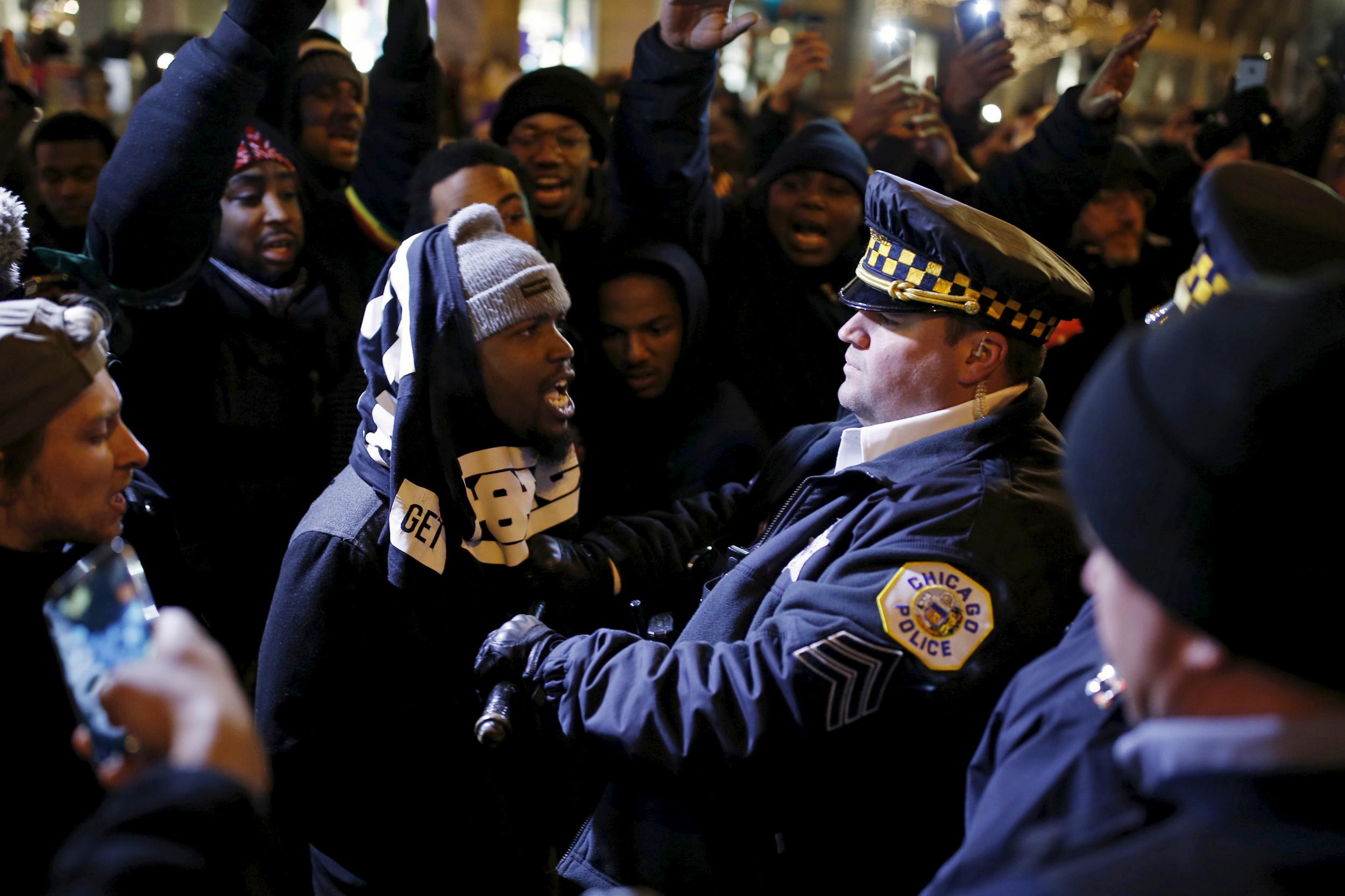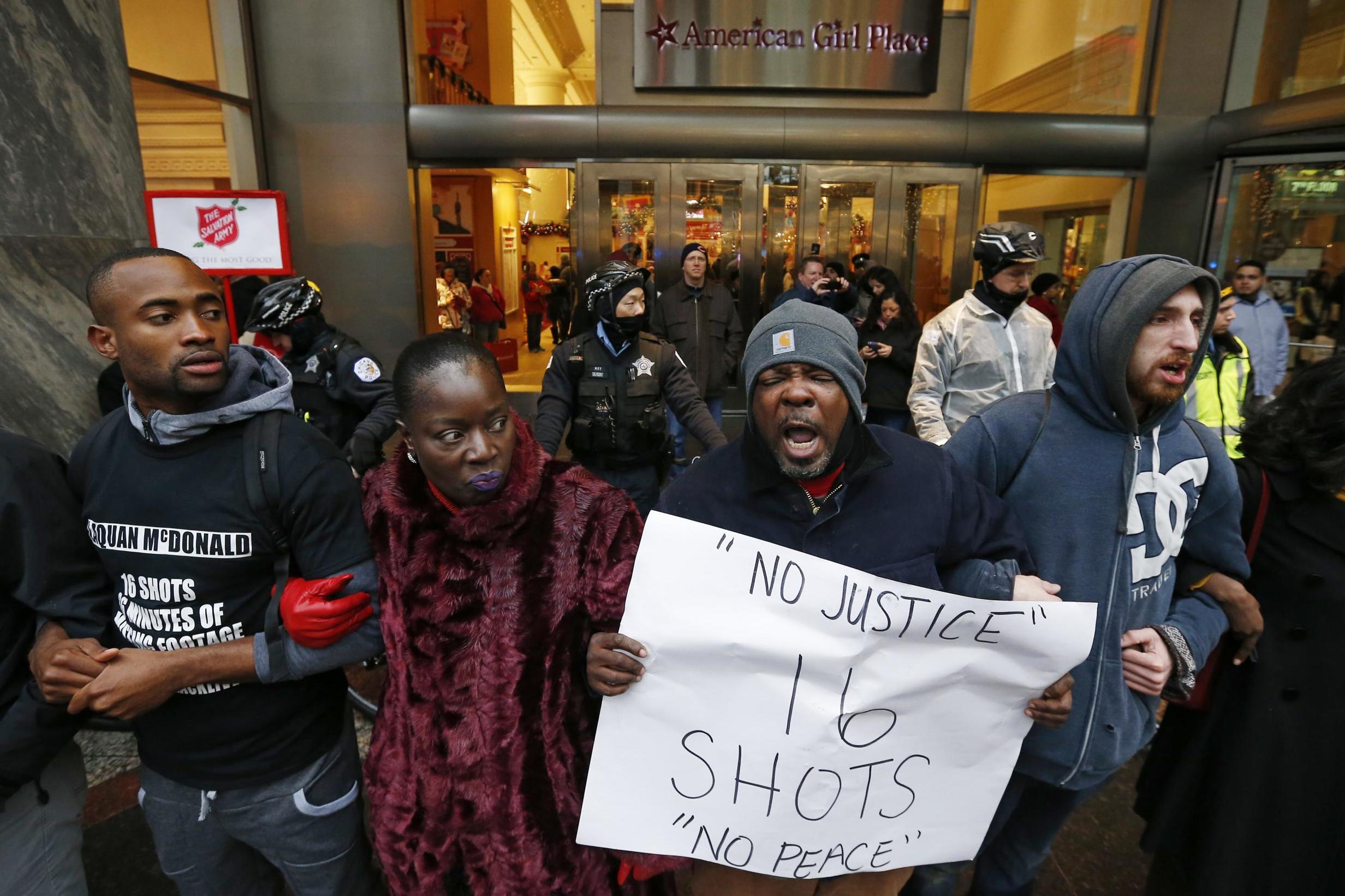Chicago on edge: Laquan McDonald murder trial begins day after Rahm Emanuel resigns
The murder trial could prove to have historic ramifications for a city beset with difficulties

Chicago did not sleep after Laquan McDonald died in October 2014, when police officer Jason Van Dyke unloaded 16 bullets into the 17-year-old.
The shooting led to months of protests, with calls for Mayor Rahm Emanuel to resign. The public was angry about being kept from viewing dash cam footage showing the teenager’s killing. The police superintendent was fired, as the mayor — who barely sustained the damage to his political career — vowed swift changes and citywide reform.
Now, Chicago is bracing for the aftershock of Mr Laquan’s shooting, arriving in the form of a murder trial for the officer involved in his death.
The ramifications of any possible outcome in Mr Van Dyke’s trial could prove historic for a city beset with difficulties.
Police officers facing trials for shootings deaths is a rarity in America, and even fewer are ever convicted. Just 35 per cent of the 80 officers charged with murder or manslaughter between 2005 and April 2017 were convicted for those on-duty shootings, while there are nearly 1,000 police shootings a year, according to a report published by Bowling Green State University’s criminal justice faculty.
In recent years, the acquittals of white police officers involved in the shooting deaths of black men have led to enormous nationwide protests.

When a jury found officer Jeronimo Yanez not guilty of second-degree manslaughter in the death of 32-year-old Philando Castile, thousands took to the streets for massive, mostly peaceful demonstrations across Minnesota.
Scores of protestors in Baltimore also responded to the acquittals of multiple officers involved in the death of 25-year-old Freddie Gray. The lack of convictions felt like “business as usual” in America to some of those demonstrators, including activist Duane “Shorty” Davis, who told the New York Times as the verdicts were announced: “You’re not going to convict nobody for killing a black man in America, whether it be in New York or Chicago, Philadelphia or Baltimore.”
Nearly 22 hours before jury selection was poised to begin this week, the two-term incumbent mayor of Chicago announced he would not seek re-election — after reportedly already having raised over $10m for his campaign.

Mr Emanuel has struggled to reign in deadly gun violence across Chicago, appearing exasperated in one press conference after at least 66 people were shot in a single weekend last month, leaving 12 dead.
“Somebody knows who did it,” he said. “These individuals out here in the street need to stop pulling the trigger … where is the accountability for them?”
Meanwhile, Eddie Johnson, the new police superintendent, has also sought to repair a deeply fractured trust between officers and the communities they serve with varying success. In the same August press conference, Mr Johnson acknowledged Chicago’s police department “could be doing better” while calling on residents to “put down the guns”.
Protestors are expected to rally outside the courthouse each day of the trial. Mr Van Dyke, who has plead not guilty and is currently free on bond, is on unpaid leave from the police department while facing 16 counts of aggravated battery and six counts of first-degree murder. He is the first Chicago officer to be charged with first-degree murder since 1980.
Jury selection begins Wednesday, with the questionnaire used to select potential jurors remaining under seal.
In court filings, the officer said the teenager was lunging at him while ignoring orders to drop a knife, “swinging the knife in an aggressive, exaggerated manner”. His account was corroborated by his partner and four other officers.
“I might be looking at the possibility of spending the rest of my life in prison for doing my job as I was trained as a Chicago police officer,” Mr Van Dyke said in an interview with the Chicago Tribune.
Still, it remains unclear how a jury might view the grainy dash cam footage showing Mr McDonald’s death. If found guilty of first-degree murder, Mr Van Dyke will likely spend the rest of his life in jail. If acquitted, it’s possible Chicago could soon see a similar reaction to the outcomes of trials in Baltimore, Minnesota and across the country.
Join our commenting forum
Join thought-provoking conversations, follow other Independent readers and see their replies
Comments
Bookmark popover
Removed from bookmarks